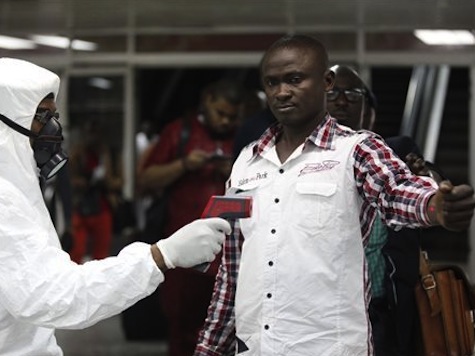In a step to prevent the deadly disease from spreading, the Sierra Leone government amended its health act to make it illegal for anyone in the country to hide people infected with Ebola. A person faces two years in prison if caught hiding an Ebola patient.
The World Health Organization (WHO) said the “outbreak has been ‘underestimated.'”
“Many families hide infected loved ones in their homes,” said the organization. “Others deny that a patient has Ebola and believe that care in an isolation ward – viewed as an incubator of the disease – will lead to infection and certain death. Most fear the stigma and social rejection that come to patients and families when a diagnosis of Ebola is confirmed.”
The UN health agency said new treatment centers are bombarded by new patients. One center only supplied 20 beds, but 70 patients walked through the door. Now the health agency wonders how many infected people are in far villages.
“This phenomenon strongly suggests the existence of an invisible caseload of patients who are not being detected by the surveillance system,” said the UN.
Sierra Leone reported 910 cases and 392 deaths. Ebola is also rampant in Guinea and Liberia. However, due to fear of hospitals and superstitions, the numbers in all three countries might be higher as people hide loved ones. Villagers believe Ebola is not a disease, but a curse. In fact, many prefer to blame the illness on a curse because that death carries less of a stigma than a death from Ebola. One village threatened medical workers they “would be cut into pieces and our flesh thrown into the water” if they did not leave. There are some Africans who believe the West contaminated Africa in order to harvest organs.
In Liberia, the government quarantined the West Point slum in the capital of Monrovia. Restless citizens attempted to break out, which led to a riot. The slum is home to 60,000 to 120,000 people. The quarantine means no one can access food and necessary items outside of the area.
Sierra Leone traced its Ebola outbreak to a woman who claimed to possess magical healing powers. She crossed into the country from Guinea, where Ebola broke out first. The woman eventually died but infected others at her funeral. Ebola is commonly contracted at funerals. Unlike in America, it is common in certain African countries for people to embrace the dead and wash the bodies of their loved ones without proper medical guidance, even if the loved ones died of a contagious disease.
“The main behavior change needed is at funerals where a lot of cases are contracted,” said Doctors Without Borders coordinator Stephane Doyonne. “That and good protective measures at [hospitals and clinics] are the most important targets.”

COMMENTS
Please let us know if you're having issues with commenting.